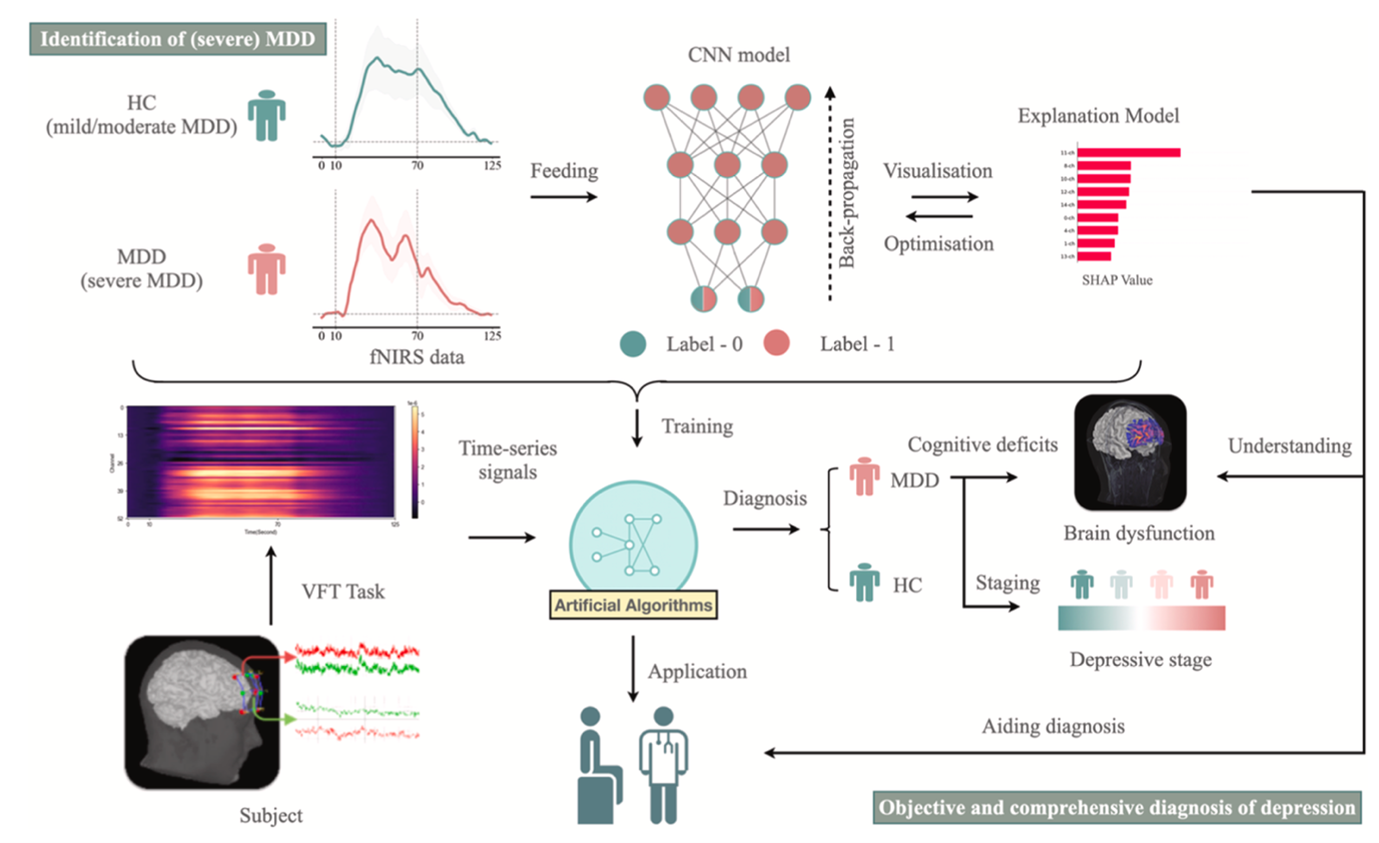Artificial intelligence algorithms of major depressive disorder
Major Depressive Disorder (MDD) affects a substantial number of individuals worldwide. New approaches are required to improve the diagnosis of MDD, which relies heavily on subjective reports of depression-related symptoms.
By utilising this approach, researchers have accomplished good diagnostic accuracy in MDD identification and staging, and improved understanding of the cortical regions potentially associated with MDD. Future research will focus on achieving more quantitative hemoglobin concentration measurement and depth selectivity by implementing the time domain technique. However, the current study has already demonstrated the potential of combining the fNIRS technique with deep learning to provide a complementary and objective diagnostic instrument for clinicians in psychiatry.

By utilising this approach, researchers have accomplished good diagnostic accuracy in MDD identification and staging, and improved understanding of the cortical regions potentially associated with MDD. Future research will focus on achieving more quantitative hemoglobin concentration measurement and depth selectivity by implementing the time domain technique. However, the current study has already demonstrated the potential of combining the fNIRS technique with deep learning to provide a complementary and objective diagnostic instrument for clinicians in psychiatry.




